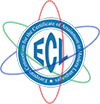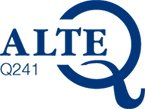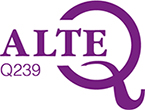The ECL language certificate at levels A2, B1, B2, and C1 is recognized by numerous authorities, institutions, and universities as an official proof of general language competence. The required level and the validity period of an ECL certificate depend on the intended use and are usually determined by the respective recognition authority.
Due to the numerous and diverse institutions, the following list is not an exhaustive one but is continuously updated. We recommend checking with the respective institution in advance for the currently applicable requirements.
-
Recognition in Germany
1. Visa Procedures and Migration
Federal Foreign Office
In visa procedures, ECL certificates at A2, B1, B2, and C1 levels are recognized as proof of German language proficiency. (Visa Handbook, 1.5.5 ECL Examination Centre)
Federal Office for Migration and Refugees (BAMF)
BAMF recognizes standardized language certificates, such as the ECL certificate in German at A2, B1, B2, and C1 levels, as an alternative to the “German Test for Immigrants.” (bamf.de, Overview of Recognized Language Certificates)
2. Recognition of Professional Qualifications in Healthcare
Due to the large number and variety of institutions, this list is not exhaustive and is continuously being updated. It is therefore always advisable to contact the relevant authority directly to make sure whether the ECL certificate is recognized.
Bavarian State Office for Nursing
The State Office for Nursing accepts the ECL B2 language certificate in German for recognition procedures in the nursing sector. (https://www.lfp.bayern.de/wp-content/uploads/2024/10/Merkblatt_Sprachnachweis_Stand_20241030_bf.pdf )
Berlin Senate Department for Health
For foreign professional qualifications in healthcare (e.g., medical and preparation assistants), the ECL certificate is accepted as proof of German language proficiency. (service.berlin.de, State Office for Health and Social Affairs)
Arnsberg District Government
For the recognition of midwives and social professions, a German ECL certificate at level B2 is accepted (https://www.bra.nrw.de/integration-migration/migration/anerkennung-auslaendischer-bildungsabschluesse-und-berufsqualifikationen/ )
Stuttgart Regional Council
In the recognition procedure for academic healthcare professions as well as for nursing and general healthcare professions, a B2-level certificate in German is accepted (additional specialist language skills may be required!) (https://rp.baden-wuerttemberg.de/rps/ )
3. Recognition under the Skilled Workers Immigration Act
Central Office for Skilled Worker Immigration North Rhine-Westphalia (ZFE NRW)
The ZFE NRW accepts ECL certificates at levels A2, B1, B2, and C1as proof of language proficiency under the Skilled Workers Immigration Act. (ZFE NRW)
Arnsberg District Government
For the recognition of foreign professional qualifications, particularly in healthcare, the ECL certificate is accepted as proof of language proficiency.
The Arnsberg District Government is also responsible for recognizing teaching qualifications from EU member states in North Rhine-Westphalia. (bra.nrw.de)
Stuttgart Regional Council
The Stuttgart Regional Council recognizes language certificates that comply with ALTE standards for various recognition procedures. (https://rp.baden-wuerttemberg.de/rps/)
Other authorities and offices that recognize the ECL certificate:
- Amt für Migration, Hamburg
- Ausländerbehörde Hannover
- Ausländerbehörden in Thüringen
- Ausländerbüro in Offenburg
- Landesamt für Einwanderung Berlin
- Zentrale Ausländerbehörde (ZAB) des Freistaates Sachsen
- Zentrale Ausländerbehörde für Fachkräfteeinwanderung Rheinland-Pfalz
- Zentrale Ausländerbehörde im Saarland
- Zentrale Ausländerbehörde Schleswig-Holstein in Neumünster
- Zentrale Stelle für die Einwanderung von Fachkräften (Bayern)
4. Recognition by Universities in Germany
German universities generally do NOT recognize the ECL certificate in German as official proof of language proficiency required for university studies.
However, there are some exceptions where the certificate is accepted as general proof of language proficiency – for example when applying to certain programs, receiving conditional admission, enrolling in language courses, or in non-academic contexts.
- European Campus Rottal-Inn (ECRI) der Technischen Hochschule Deggendorf [for German-language degree programs at the levels B2 or C1 (depending on the subject), for English-language degree programs B1 (Bachelor) or A2 (Master), certificate must not be older than 2 years]
- Technische Universität Braunschweig (for applications to degree programs without admission requirements, proof of a German course at level B2 must be provided)
- Technische Universität Kaiserslautern(at least level B1 for application to study)
- Universität Bamberg (at least level B1 for the application to the preparatory German course, at least B2 for participation in the DSH exam and for the application to the Studienkolleg)
- Universität Göttingen[for application to study at least level A1 (ECL exams from level A2)]
- Universität Hannover (for application for all Bachelor’s degree programs at least level B1)
- Universität Kassel (at least level B1 for application to the DSH preparatory course and for the Studienkolleg)
- Universität Kiel (at least level B1 for admission to the preparatory German course)
- Universität Oldenburg (for some Master’s degree programs, a certificate of German language proficiency at level B2 or C1 is sufficient, otherwise at least level B2 for application to the preparatory college, at least level B1 for participation in a preparatory German course)
- Universität Paderborn (at least level A1 for application to a preparatory German course)
- Universität Regensburg (at least level B2 for the application to study)
- Universität Saarbrücken (all levels for the application for the preparatory German course)
- Universität Siegen ((at least level B1 for the application for the preparatory German course)
- Universität Trier (at least level B2 for admission to the DSH exam)
- Universität Würzburg (at least level B2 for some Bachelor’s degree programs, for all other degree programs at least level B2 for admission to the DSH exam or application for the preparatory course)
Important Notes for Germany
Validity of the Certificate:
- Generally, the language certificate should not be older than one year, especially for visa applications. (germania.diplo.de)
Specific Requirements:
- Depending on the federal state or authority, additional or different requirements may apply
- It is recommended to check directly with the relevant institution for exact prerequisites.
-
Recognition in Switzerland
State Secretariat for Migration (SEM)
The SEM of Switzerland includes ECL certificates in German at levels B1 and B2 on its list of recognized language certificates for foreigner and citizenship procedures.
The certificate meets the minimum requirements for residence and settlement permits as well as for naturalization. (sem.admin.ch)
-
Recognition in Austria
Universities:
Austrian universities do NOT accept the ECL certificate in German as official proof of language proficiency for admission to German-language degree programs.
Visa and Immigration:
For residence and settlement permits in Austria, other certificates (e.g., ÖSD, Goethe, telc, TestDaF) are required. (oesterreich.gv.at)
-
Recognition in Hungary
In Hungary, ECL exams at levels A2, B1, B2, and C1 in English, Hungarian, and German are state-accredited and recognized by all universities and employers as proof of language proficiency.
All certificates in other ECL languages can be recognized through a nostrification process by the Hungarian education authority.
-
Recognition in Romania
In Romania, ECL exams in English, German, French, Italian, Spanish, and Russian at levels B1, B2, and C1 are recognized as equivalent to the national high school language exam.
-
Recognition in Vietnam
In Vietnam, the German up from level B1 in German can replace mandatory language courses and final exams at vocational schools.
However, for academic or professional purposes, other internationally recognized language certificates are often preferred.
It is recommended to check in advance with the respective institution or authority to confirm acceptance of the ECL certificate.






